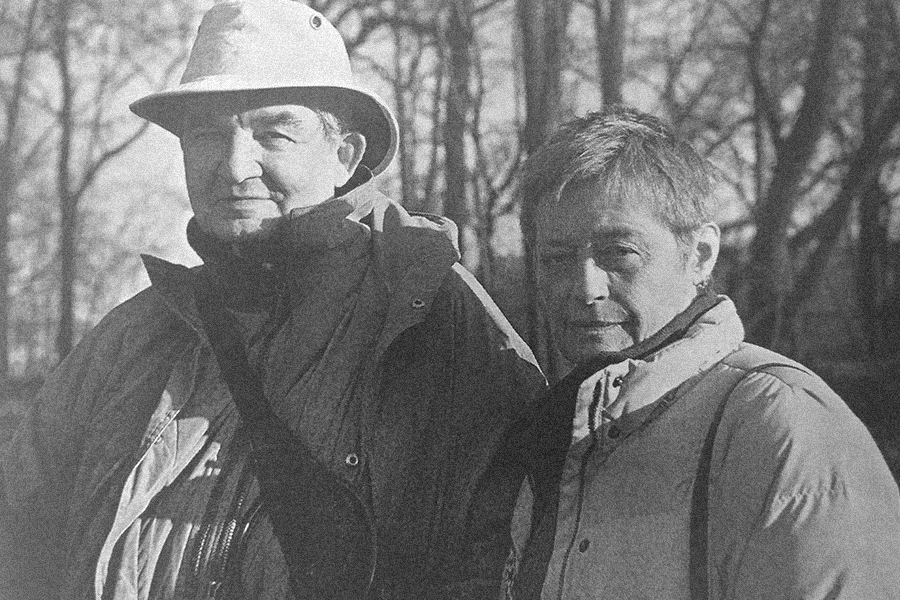
Paul Fierlinger
I was born in the spring of 1936 in Ashiya, Japan as the only son of a Czechoslovak diplomat, Jan Fierlinger. As the war was drawing near, my father was ordered to return to Czechoslovakia. For weeks, we traveled throughout the continent on the Trans-Sibirian Railway. It was one of those days during our enduring journey when my father learned that Nacis took over Czechslovakia. We suddenly had no place to go. However, my uncle Zdenek Fierlinger, then an ambassador to Moscow, arranged for my father a position at the Czechoslovak embassy in exile in New York. And that is how I became a war refugee in America.
It was one of those days during our enduring journey when my father learned that Nacis took over Czechslovakia. We suddenly had no place to go
My parents had no spare time for my upbringing so I lived in foster homes, first one being a family farm in New Hampshire. I had great times with the family. They had two children of their own and were taking care for four other refugees. The war was far but present in our lives. I still recall the day of the attack on Pearl Harbor, the room was full of frightened grown-ups listening to radio.
Unfortunately there was only 1-room schoolhouse and I soon had to move out. I was placed to a boarding school for older boys where I was the youngest and the smallest. I felt out of place. So yet again I had to change the address and moved to a family of Downs. They were wonderful and we quickly grew used to each other. We all were fighting Hitler, though everybody somewhat differently: My parents preoccupied in New York, Downs by assuming responsibilities for their son and I was helping by staying out of my parents’ way

1945 came about and the war finally ended. My uncle Zdenek soon became the prime minister of Czechoslovakia while the country was slowly turning darker for the next 40 years. The short-lived democracy ended by the communist-staged Coup d’etat in which my uncle played a major role. Accordingly my father quickly switched from American democracy to Soviet communism.
Hence we had to return to Europe. All those years I had considered myself an American, yet I was suddenly traveling in a train throughout the war-torn France and Germany. One more time I had to stay invisible for my busy parents who sent me to a boarding school in Podebrady where I created my first animated film by shooting drawings from my flipbook. It was a tough school, classes were difficult and I did not understand a word in Czech. Later on my Czech improved, yet I still felt like I did not belong there.
And so the years passed by. My mom died and my father sent me to yet another school. One day I was approached by a stranger, he introduced himself as a CIA agent. I was so excited, all I could think of was that I was a step away from escaping to America. He gave me some documents that were supposed to get me through the border. Unfortunately, the plan did not work out and I instead got caught and interrogated.
At the age of 18 I had to join the army, just like anybody else. During the so-called election, we were all directed to take the ballot with a single candidate and put it into the ballot box. All was staged, by all means, yet I figured you could cross out the name and ask for a pencil. I was then sentenced for deprecating the socialists’ republic, disrupting free election process and for inciting riots. My father asked my records to be erased, due to my “unique disadvantage” of living in the USA as a boy. I was so furious, I was proud to be rebel, proud for my record. Year by year I kept no contact with my father. Our lives were so starkly different. My father got to the high ranks of the communist party and I became one of the rebelling Bohemians of Prague. I worked as a freelancer, listened to Radio Free Europe and spent my time sitting in beer gardens and talking to other fellow Bohemians and dissidents, Vaclav Havel or Pavel Landovsky among them.
Because I knew how to falsify signatures I obtained documents that got me through the border. I landed in Amsterdam in 1967 where it was whole of a different world, there were no long queues in shops and the air was filled with positive energy
Still I was constantly looking at opportunities to escape. In 60s the regime government was in urgent need for hard currency and thus some restrictions on foreign travel were relaxed. Because I knew how to falsify signatures I obtained documents that got me through the border. I landed in Amsterdam in 1967 where it was whole of a different world, there were no long queues in shops and the air was filled with positive energy. I finally felt like I was in a right place. From Amsterdam I emigrated to France, Germany and finally in 1968 to USA, country that I consider home.
Paul Fierlinger was one of the most well-known animators and producers of animated films and documentaries of Czech-Amarican origin. Many of his films received considerable recognition, such as Academy Award nomination, “First Prize” in Aspen, Colorado, “1st Prize” at the 2002 International Festival of Animation in Zagreb and Golden Gate Award in San Francisco and many other prestigious awards.




Flora Hogman
I am impressed by how he was able i in an artistic way to express the very stressful life he endured growing up, And his strength and ability to not give up and to find ways to express himself. I am always touched by such people and their stories. Myself as a Holocaust survivor, hidden child during the war(in 4 different places) can in some ways relate to his experience. Myself used that experience to express in my own artistic way what happened to me through artistic photos and writing as well.
Flora Hogman
I am impressed by how he was able i in an artistic way to express the very stressful life he endured growing up, And his strength and ability to not give up and to find ways to express himself. I am always touched by such people and their stories. Myself as a Holocaust survivor, hidden child during the war(in 4 different places) can in some ways relate to his experience. Myself used that experience to express in my own artistic way what happened to me through artistic photos and writing as well.
June 15, 2022